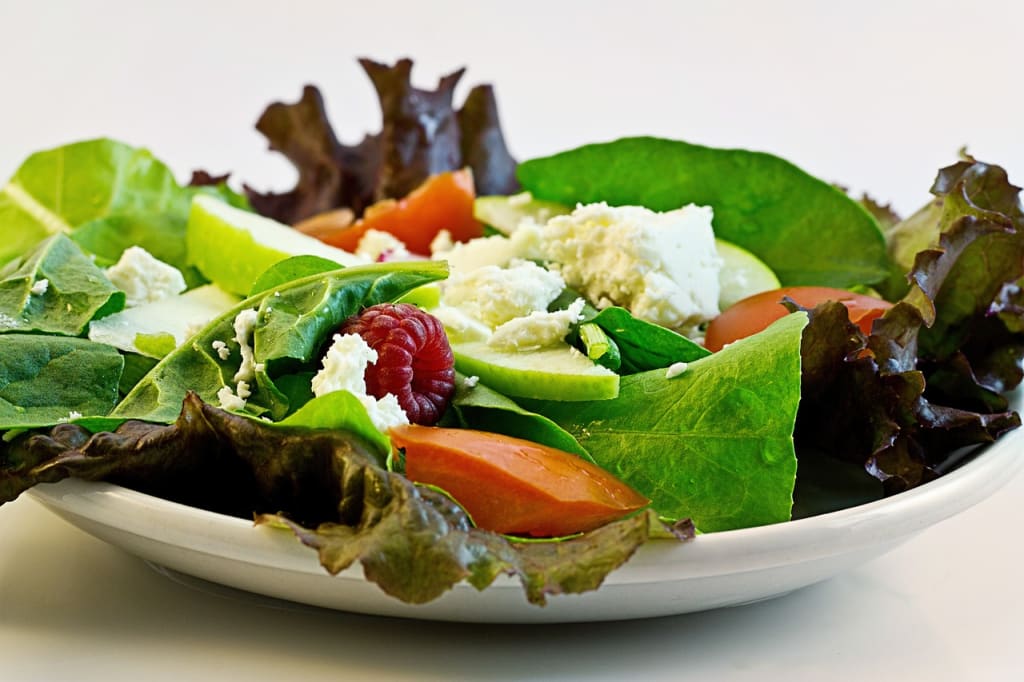The Best Foods For Weight Loss: A Guide To Smart Diet Decisions
Are you looking to lose weight and get healthy? If so, then you’ve come to the right place. In this guide, we’ll take a look at the best foods for weight loss and how you can make smart diet decisions that will help you reach your goals.

Vegetables: Leafy greens, broccoli, cauliflower, carrots, etc. are low in calories and high in fiber, vitamins and minerals.
Leafy greens, broccoli, cauliflower, and carrots are nutrient-dense foods that are low in calories and high in fiber, vitamins, and minerals. They can help support weight loss by filling you up and keeping you feeling full for longer, without contributing excessive calories to your diet. Additionally, consuming a diet rich in vegetables can also help support overall health and wellness.
Protein: Chicken, fish, eggs, legumes, and dairy are filling and help build muscle.
protein-rich foods like chicken, fish, eggs, legumes, and dairy can help support weight loss by keeping you full and satisfied for longer periods of time. They can also help to build and maintain muscle mass, which can be beneficial for weight loss as muscle burns more calories at rest than fat. However, it's important to choose lean protein sources and limit the amount of high-fat dairy products you consume, as these can be high in calories.
Whole grains: Oatmeal, brown rice, whole wheat bread, etc. are slow-digesting, providing sustained energy and reducing cravings.
Whole grains like oatmeal, brown rice, and whole wheat bread are a good source of slow-digesting carbohydrates, which can provide sustained energy and help reduce cravings. They are also high in fiber, which can contribute to feelings of fullness and satiety, supporting weight loss efforts. It's important to choose whole grain options over refined grain products, as the refining process strips the grains of their fiber and other beneficial nutrients.
Fruits: Berries, apples, citrus, etc. are low in calories and high in fiber, vitamins and antioxidants.
Fruits like berries, apples, and citrus are low in calories and high in fiber, vitamins, and antioxidants. They can help support weight loss by providing essential nutrients, fiber and helping to keep you full without contributing excessive calories. Eating a variety of fruits can also help ensure you get a wide range of nutrients and antioxidants, which can support overall health and wellness. Just be mindful of portion sizes, as some fruits can be high in natural sugars.
Healthy fats: Avocados, olive oil, nuts, etc. aid weight loss by keeping you full and reducing inflammation.
healthy fats from foods like avocados, olive oil, nuts, and seeds can help support weight loss by keeping you full and satisfied, reducing the likelihood of overeating. These foods also contain monounsaturated and polyunsaturated fats, which can help reduce inflammation in the body, and improve insulin sensitivity, both of which can support weight loss efforts. However, it's important to consume these foods in moderation as they are high in calories, and overconsumption can lead to weight gain.
Water: Drink plenty of water to hydrate and feel full.
Drinking plenty of water can help you stay hydrated, which is important for overall health and wellness. It can also help you feel full and reduce the likelihood of overeating. Drinking water before meals can be particularly helpful for weight loss, as it can help to reduce hunger and increase feelings of fullness. Additionally, avoiding sugary drinks and opting for water can also help reduce overall calorie intake, contributing to weight loss efforts.
Avoid processed foods, added sugars and excessive amounts of unhealthy fats.
Processed foods, added sugars, and excessive amounts of unhealthy fats (such as trans fats and saturated fats) can be high in calories and contribute to weight gain. These types of foods are often low in fiber, vitamins, and minerals, and can also have a negative impact on overall health and wellness. By avoiding processed foods and added sugars, and limiting unhealthy fats, you can reduce overall calorie intake and support weight loss efforts. It's important to focus on eating nutrient-dense, whole foods instead.
Eating meals in moderation, regularly monitoring portions and consuming protein-rich snacks can help control hunger.
Eating meals in moderation, regularly monitoring portion sizes, and consuming protein-rich snacks can help control hunger and support weight loss efforts. Eating smaller, more frequent meals can help regulate blood sugar levels, reducing cravings and the likelihood of overeating. Additionally, protein-rich snacks can help keep you feeling full and satisfied between meals. Monitoring portion sizes can also be helpful for controlling calorie intake and supporting weight loss. It's important to listen to your body's hunger and fullness cues and eat only until you feel satisfied, not stuffed.
Are you looking to lose weight and get healthy? If so, then you’ve come to the right place. In this guide, we’ll take a look at the best foods for weight loss and how you can make smart diet decisions that will help you reach your goals. We’ll cover everything from what types of food are best for weight loss to how to create a balanced meal plan that will keep you full and satisfied while still helping you shed those extra pounds. So let’s get started!
Eating healthy and nutritious food is essential for achieving and maintaining a healthy weight. But with so many diet options out there, it can be hard to know which foods are best for weight loss. To help you make smart diet decisions, this guide will provide an overview of the best foods for weight loss and their nutritional benefits. We'll also discuss how to incorporate these foods into your diet plan in order to achieve your desired results. With the right combination of nutrition and exercise, you can reach your goals and enjoy a healthier lifestyle.
Eating healthy and maintaining a balanced diet is key to achieving your weight loss goals. However, it can be difficult to know which foods are best for you. To help you make smart diet decisions, this guide will provide an overview of the best foods for weight loss and how to incorporate them into your daily meals. We'll also discuss how different types of food can contribute to your overall health and well-being. With this information in hand, you'll be able to make informed decisions about what foods are right for you and which ones should be avoided.
About the Creator
Riswan Sm
Blogger l Youtuber






Comments
There are no comments for this story
Be the first to respond and start the conversation.